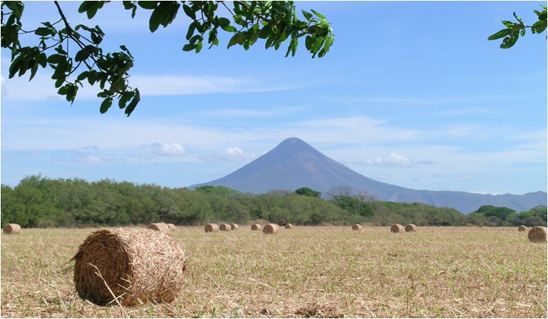UK professor’s Nicaraguan study shows environmental lessons learned
UK professor’s Nicaraguan study shows environmental lessons learned

A University of Kentucky professor is studying the environmental impacts of Nicaraguan crop production and what the Latin American country is doing to make their farming practices more environmentally friendly.
Paul Vincelli, extension plant pathologist in the UK College of Agriculture, Food and Environment, is spending a six-month sabbatical in Managua, Nicaragua, the capital city of the poorest country in Latin America. Poverty is an important reason environmental regulations weren’t enforced in the past.
“The people here care quite a bit about the environment,” he said. "There aren’t the same types of environmental protections that the U.S., Canada and Western European countries have because of poverty and a general lack of funding.”
In no case was it more evident than that of the country’s cotton production. In the 1970s, Nicaragua had a large cotton industry. Farmers in the country cut down forests and used watershed recharge zones to plant more cotton. Within 10 years the industry was gone, but Nicaraguans are still dealing with its effects more than 30 years later.
“Nicaraguans lost the industry, because they overused pesticides and resistance developed in insects,” he said. “This caused farmers to spray their fields more often, but despite how much they sprayed, they couldn’t control the insects.”
Vincelli talked with some pesticide applicators and farm workers in the country who are still dealing with health problems due to the cotton boom and subsequent bust. The country lost much of its tropical forests, and some rivers still don’t have the amount of water in them that they had before the cotton boom.
Today, the country is pushing for a more agroecological approach to farming. Agroecology involves designing agricultural systems that are productive, profitable and conserve environmental resources. It also looks at potential technical, biological and socioeconomic effects of agricultural systems.
The cotton boom and bust is also used as an educational case-study in Nicaragua for college students studying business. Educators hope this will raise awareness among students that industry and business can suffer if the environment is allowed to degrade.
Vincelli will offer a study tour of the country in February for agents and other individuals interested in learning about the country, its history of farming practices and culture.
“Nicaragua provides powerful lessons in sustainability,” he said. “We should celebrate the fact that in America we do have environmental protections that allow us to grow the safest food possible.”
Extension

